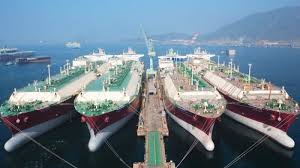David Lawrence is a former Shell executive with an extensive background in energy, finance, oil and gas initiatives and energy strategy and scenarios. Presently guiding Lawrence Energy Group, LLC, David Lawrence utilizes his experience at Shell to focus on targeted strategies in the energy transition, including biosequestration, natural gas, mature field redevelopment, renewable energy and energy efficient fossil fuels.
In an interview during the Bloomberg New Energy Finance Summit, the head of Royal Dutch Shell’s integrated gas and new energies division discussed the firm’s acquisition-driven shift to lower-carbon energy sources. A particular emphasis is on boosting the role of electricity in energy consumption a sector with significant potential to both growth transform into one that is carbon free.
While electricity’s current share of final energy consumption stands at 22 percent, Shell’s internal analysis forecasts the rate to reach more than 50 percent by 2070. The rapid increase will be attributed to significant energy consumption in industrial processes, cooking, and residential heating, and transportation.
Shell has already moved into the retail electric utility business in Britain and has growth in the United States in its sights. At the same time, it has acquired firms such as Singapore’s Cleantech Solar, which creates solar farms in Asia and Greenlots, a German startup focused on electric-vehicle charging.

